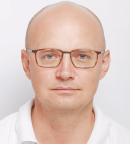
Bostjan Seruga, MD, PhD
Bostjan Seruga, MD, PhD, is a medical oncology consultant at the Insitute of Oncology Ljubljana and Associate Professor at the University of Ljubljana, Slovenia. He has published on barriers in global cancer research. The ASCO Post spoke with him recently about his career path, cancer care in Slovenia, and his thoughts about current challenges in oncology.
Early Years
Please, tell the readers a bit about where you were born and raised and what factors influenced your decision to become a doctor.
I was born in Ptuj, a picturesque town with a prominent medieval castle situated on a hill alongside the Drava River in the northeastern section of Slovenia. For the first 18 years of my life, Slovenia was still part of communist Yugoslavia. Idyllic rolling hills scattered with vineyards, orchards, and forests were the playground of my childhood. A deep connection with nature strongly determined my early development and paved my path into the future. From a very early age, I was strongly determined to become a medical doctor, without being pushed by immediate family or any specific incidents.
Please describe your college and medical school experience and when you decided to pursue a career in oncology.
After the violent breakdown of Yugoslavia, which came about as the result of a series of political upheavals and conflicts during the early 1990s, I moved to Ljubljana and started medical school. Oncology started to intrigue me very early during my studies, and after I finished my internship in 2001, I became the first resident in medical oncology in the country. Throughout the educational process, I had excellent teachers but was never taught to ambitiously set my long-term career goals. During my residency, I was privileged to meet Prof. Ian Tannock at a regional conference; he later offered me a position as Clinical Research Fellow at the Princess Margaret Cancer Centre in Toronto.
I leaped head first into the new mission. The time I spent from 2007 to 2010 in cosmpolitan Toronto was one of the most rewarding periods of my life. Eye-opening mentors, new knowledge, and new friends substantially catalyzed the expansion of my mind. During my fellowship, I predominantly focused on breast cancer, genitourinary cancers, and clinical trial methodologies.
Current Roles
What is your current position and work?
Since 2010, I have worked as a specialist in breast cancer and genitourinary cancers at the Institute of Oncology Ljubljana. My interests are focused mainly on clinical and health services research. Collaboration within our informal international and independent collaborative group of former Princess Margaret Cancer Centre fellows (including Drs. Eitan Amir, Alberto Ocana, and Arnoud Templeton) remains my main intellectual stimulus. We mainly aim to scrutinize the value of modern anticancer agents and the methodology of clinical trials, which can have an impact on various key stakeholders in health care around the globe.
Over the past several years, I have actively contributed to the development and strategic endorsement of medical oncology in Slovenia. Cancer care in Slovenia is provided through the public health service network, which completely covers costs. Although most new anticancer agents are reimbursed in Slovenia, there is a shortage of medical oncologists in the country. Unfortunately, due to suboptimal leadership and a shortage of well-trained staff, the aging health system is unable to follow the pressing demands and continuing advances of cancer care.
Closing Thoughts
Any closing thoughts about oncology on a personal level and on the world stage?
In our role as health-care professionals, we should not forget to take care of ourselves. Governing bodies around the world need to recognize the increasing demands within the rapidly changing field of medical oncology. Within our societies, we should set reasonable working standards that allow us to endure professional marathons.
Also, as our professional field is rapidly changing, we should address current concepts in cancer care that were conceived decades ago. And last but not least, we should steadily aim for equality in cancer care services and remain our patients’ best advocates. ■
DISCLOSURE: Dr. Seruga reported no conflicts of interest.
=

